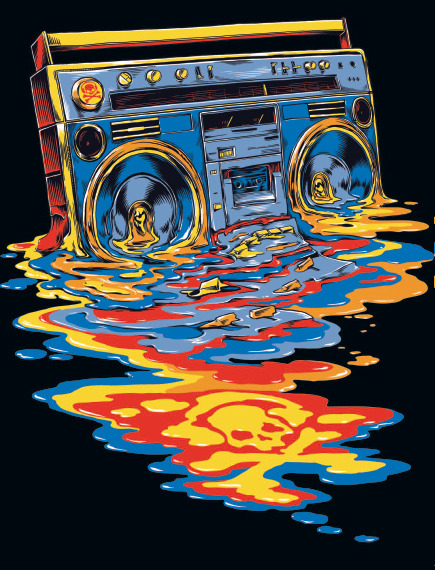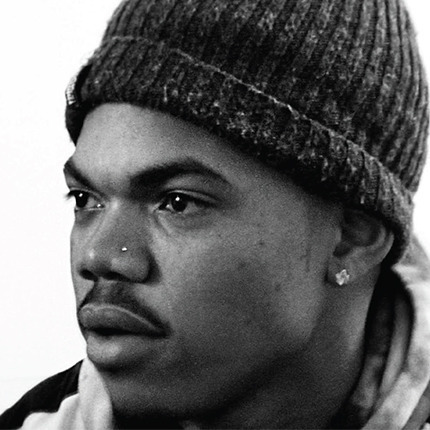The Official Funky Management Blog Based in the Washington, DC Metropolitan area, we are an artist management and representation company dedicated to discovering, developing and delivering exceptional talent to the world.
407 posts
For The First Time Since The ITunes Store Opened Its Doors, The U.S. Music Industry Finished The Year
For the first time since the iTunes store opened its doors, the U.S. music industry finished the year with a decrease in digital music sales.
While the digital track sales decline had been expected due to weaker sales in the first three quarters, the digital album downturn comes as more of a surprise as the album bundle had started out the year with a strong first quarter.
Overall for the full year 2013, digital track sales fell 5.7% from 1.34 billion units to 1.26 billion units while digital album sales fell 0.1% to 117.6 million units from the previous year’s total of 117.7 million, according to Nielsen SoundScan.
While industry executives initially refused to attribute the early signs this year of digital sales weakness to the consumer's growing appetite for streaming, in the second half of the year many were conceding that ad-supported and paid subscription services were indeed cannibalizing digital sales.
While SoundScan has not yet released its annual streaming numbers numbers, so far industry executives have been reporting that the growth in streaming revenue has been offsetting the decline in digital sales revenue.
Overall, album sales suffered an 8.4% decline, dipping to 289.4 million units from nearly 316 million units in 2012. The CD declined 14.5% to 165.4 million units, down from 193.4 million in the prior year, while vinyl continued its ascension rising to 6 million units from the 4.55 million the format tallied in 2012. That means vinyl is now 2% of album sales in the U.S; digital albums comprise 40.6% and the CD is 57.2% and cassettes and DVDs 0.2%
Continue Reading
More Posts from Funkymgmt-blog-blog
Digital download sales are likely to increase again in 2013. But by one measure, downloads actually peaked in 2011. Download sales accounted for 73% of digital revenues in 2011 and fell to 70% last year, according to annual shipments tracked by the Recording Industry Association of America (RIAA). Not that download sales have declined over the years. Track and digital album sales have each grown every year since the RIAA began reporting them in 2004. As a percent of total revenue -- counting both physical and digital revenue as well as synchronization royalties -- download sales rose to 40% from 36% in 2011; 31% in 2010; and 24% in 2009. Nor have download sales declined in dollars. In fact, annual download sales continue to grow each year. Track and album sales grew by $235 million last year and gained a combined $912 million in the three-year period of 2010 through 2012. Download revenue is likely to grow again in 2013 by very low single digits. Yet new business models are eating into downloads' dominance. Services such as Spotify, Pandora and SiriusXM grew by $405 million in 2012 and $1.22 billion in the three-year period of 2010 through 2012 -- both much higher than downloads' gains. Another key factor: download sales growth has almost stalled this year after years of double-digit gains. But downloads' grip on digital revenues will ease over time because subscription and streaming services are experiencing high growth rates. Subscription and streaming services grew by 69% and 59% in 2011 and 2012, respectively. Royalties from services that pay royalties to SoundExchange -- such as Pandora, iHeartRadio and SiriusXM -- grew by 58% last year. The market is clearly shifting toward streaming services. The numbers suggest we may be beyond the tipping point.
Nearly a decade after the mixtape wars of the mid-2000s, the format still resides in an awkward limbo for retailers, distributors, artists and labels. Many retailers stopped carrying mixtapes after the RIAA proved litigious against the sale of unofficial releases, leading police raids on several retailers in 2005 and on the offices of DJ Drama in 2007. But mixtapes remain a critical promotional tool in the industry, particularly among hip-hop artists, where they often rival official albums. Outside the purview of the major-label system, sales of the format have persisted.
Last month, a mixtape album by unsigned artist Chance the Rapper available as a free download landed at No. 63 on Billboard's Top R&B/Hip-Hop Albums chart, having sold 1,000 copies in the week ending July 7, according to Nielsen SoundScan. The collection of original music, "Acid Rap," was sold through iTunes and Amazon, despite having been offered for free on the artist's website since April 30. After representatives of the artist claimed that the sales were being made without their knowledge or compensation, digital versions of the tape were quickly pulled from both retailers. But on Amazon, an apparently unauthorized physical version of "Acid Rap," credited to a company called "Mtc," continues to be sold at press time for $14.83.
"I've never heard of Mtc, so this has taken us by surprise," Chance's manager Patrick Corcoran says. "But when I first saw it I showed Chance, and his lawyers are trying to stop it."
Continue Reading



